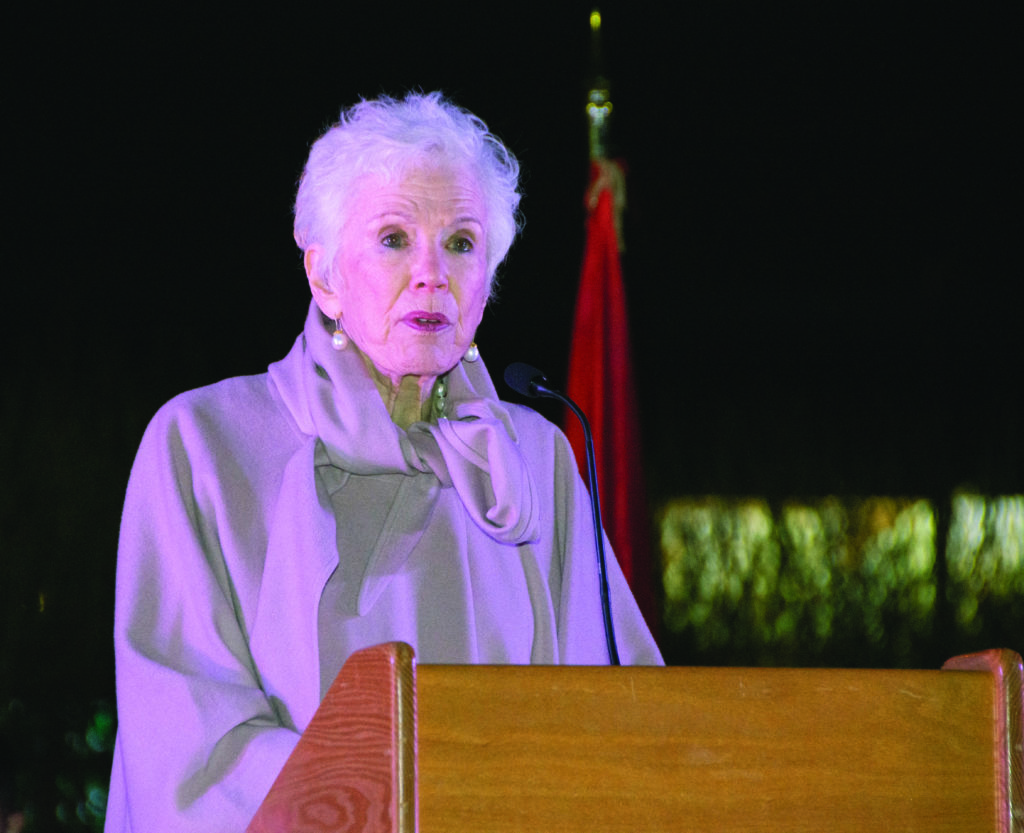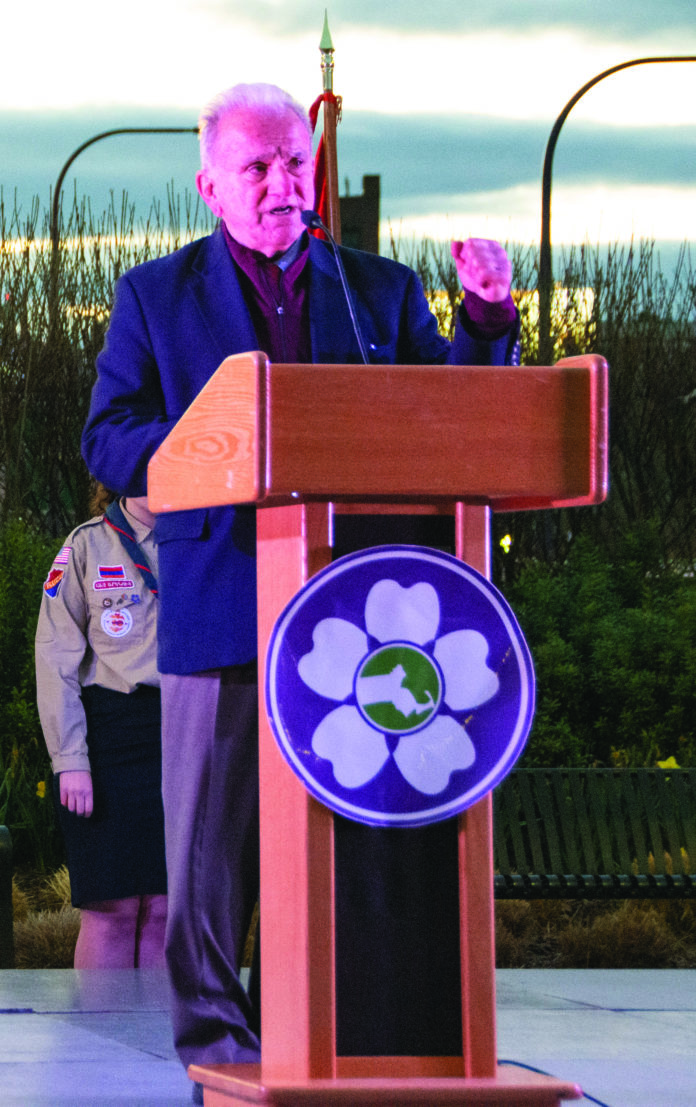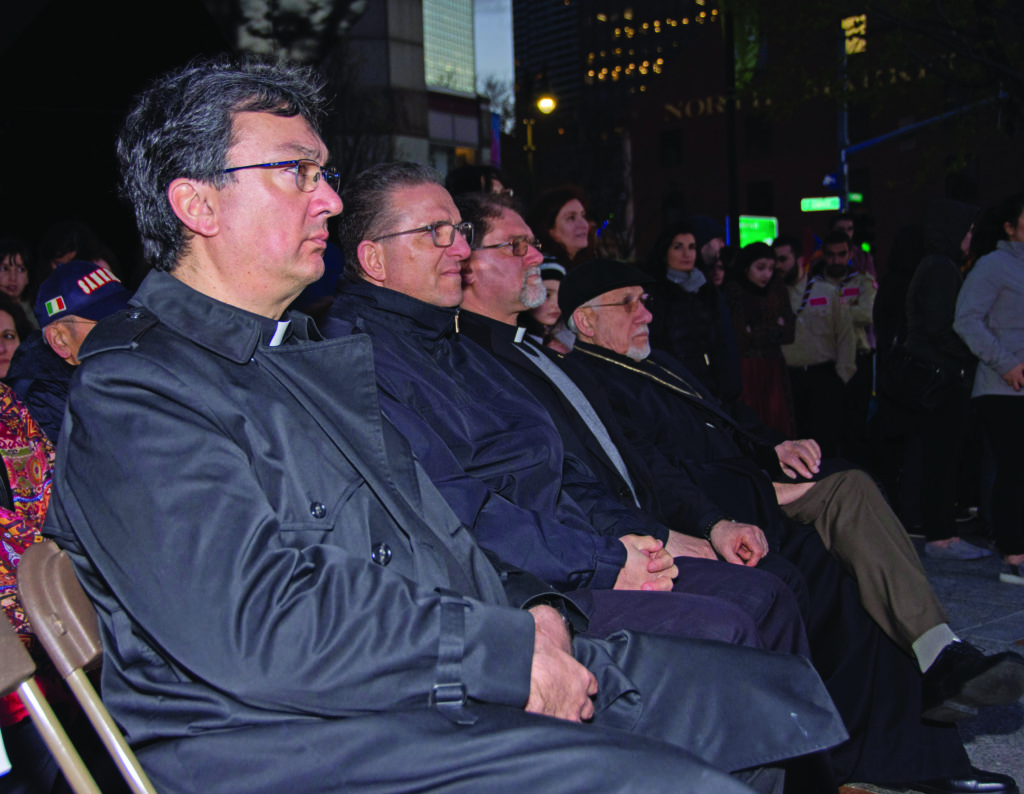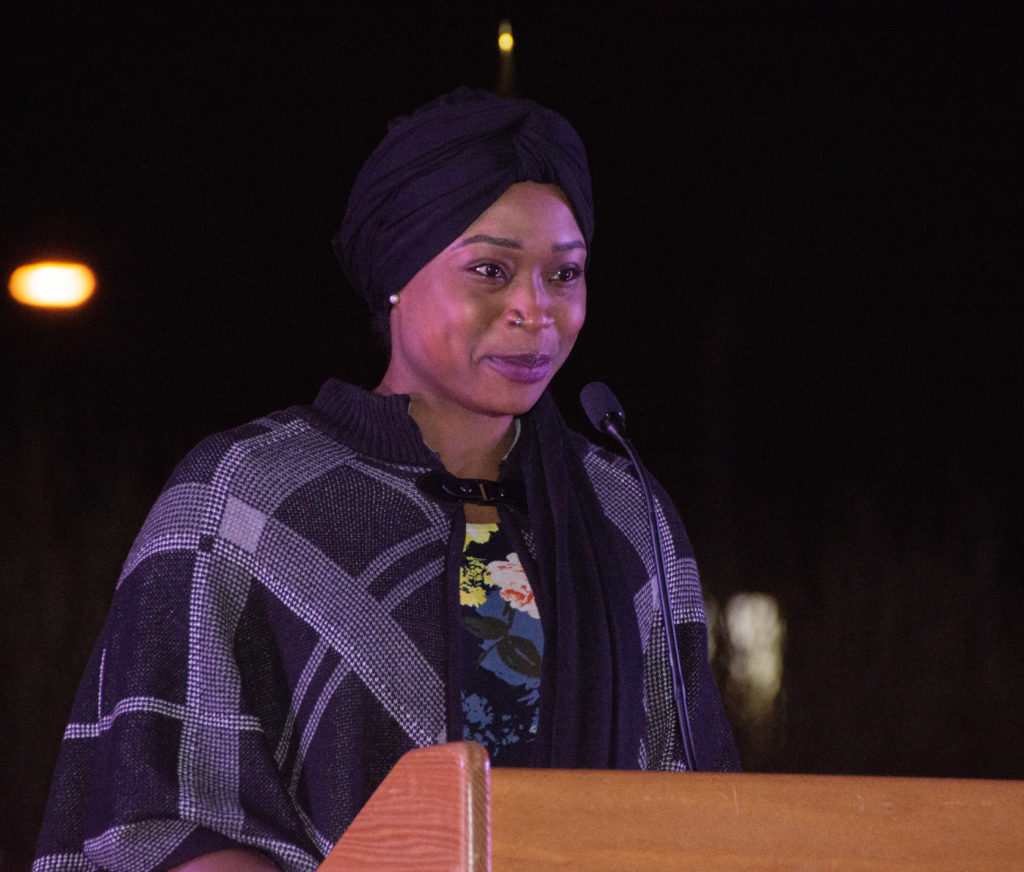BOSTON — About 150 people gathered on Wednesday, April 24, at the Armenian Heritage Park to commemorate the 104th anniversary of the Armenian Genocide, braving an unseasonably cold and blustery evening.
Speakers Stephen Kurkjian, Dr. Pamela Steiner and Ekhlas Ahmed addressed the crowd.
Kurkjian, a retired reporter who won three Pulitzers at the Boston Globe, spoke from the heart, as a descendent of a survivor of the Genocide. He tied history to the present, presenting it in a bright light. He said that from the loss of more than a million people, to the dispersion of many others, and their uprooting from lands “they had occupied since the Bronze Age,” their descendants are alive and well, halfway around the world, in a park named for them.

He then spoke about visiting his ancestral homeland, Keghi, with his father, a quarter-century earlier. Once, he said, the Kurkjians were among the 3,000 families living there. His father, Anooshavan, survived the 300-mile trek to safety as a 3-year-old.
Kurkjian wrote about this trauma in a cover story for the Boston Globe Magazine, titled “Roots of Sorrow.”
In spite of the many plaudits and awards that he has received for his great body of work exposing wrongdoing, he said that Boston Globe article is his favorite. “That was the most important, inspiring article I wrote,” he said. He added, however, that he has since realized that the headline needs to be expanded to include the positive changes that have happened.











